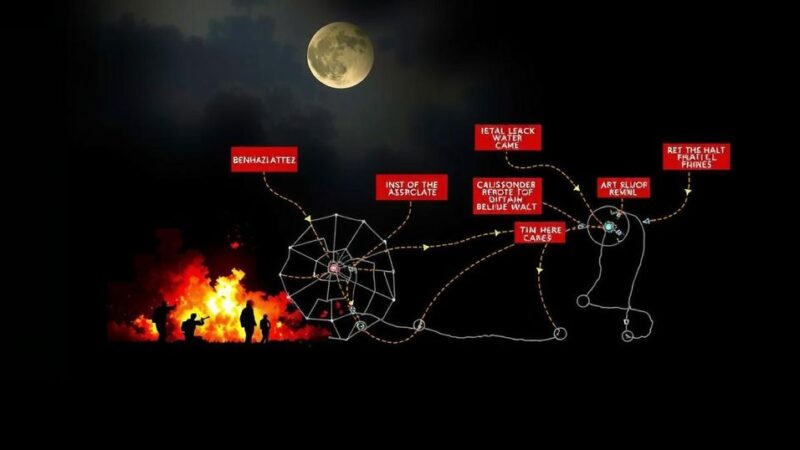Amnesty International urges Slovenia and Montenegro to deny docking rights to the MV Kathrin, which is believed to carry explosives destined for Israel, citing concerns over potential war crimes in Gaza. The ship was previously barred from entering Namibia based on similar suspicions. This situation underscores the obligations of states under international law to prevent arms transfers that could support unlawful actions in conflict zones.
Amnesty International has urgently requested that Slovenia and Montenegro prevent the Portuguese-flagged vessel MV Kathrin from docking at their ports, suspecting it is transporting explosives intended for Israel. This cargo poses a significant risk of facilitating war crimes in Gaza. The ship was previously denied entry to Namibia’s main harbor due to similar concerns, and details from both the Namibian government and Portugal’s Foreign Minister confirm that the MV Kathrin is en route to Montenegro and Slovenia’s port of Koper. Nataša Posel, the Director of Amnesty International Slovenia, emphasized the danger of the cargo: “The deadly cargo believed to be on board the MV Kathrin must not reach Israel as there is a clear risk that such cargo would contribute to the commission of war crimes against Palestinian civilians.” She pointed out that Namibia acted correctly by denying the ship access, calling on Slovenia and Montenegro to adhere to their international obligations by halting the transfer of military cargo. International humanitarian law prohibits any nation from supplying arms to combatants involved in armed conflict when there is a known risk of contributing to war crimes. Amnesty International has gathered evidence documenting various war crimes committed during conflicts involving Israel and the Palestinian territories, including the use of explosive weapons targeting civilian populations. Slovenia, Montenegro, and Portugal, as parties to the Arms Trade Treaty, are obligated to maintain stringent standards against the international trade of arms that could exacerbate human suffering. The organization is advocating for an arms embargo on both Israel and Palestinian armed groups in Gaza due to their documented misuse of weaponry. Portugal, as the flag state, must ensure that the MV Kathrin does not facilitate the illegal transfer of explosive materials or otherwise retract its flag.
The MV Kathrin embarked with its controversial cargo from Hai Phong, Vietnam, on July 21. Subsequent to its departure, Namibia revoked landing permissions on August 24, following intelligence regarding the ship’s planned transfer of munitions to Israel. The ship’s scheduled docking at Walvis Bay was subsequently blocked based on these allegations, as well as a warning from U.N. Special Rapporteur Francesca Albanese concerning the nature of the cargo, which reportedly contains components for use in aerial bombardments. These developments underline global legal obligations regarding arms transfers amidst conflict zones, emphasizing the need for compliance with international humanitarian law.
In conclusion, Slovenia and Montenegro face a crucial decision regarding whether to allow the MV Kathrin to dock at their ports and potentially facilitate the transfer of dangerous explosives to Israel. Amnesty International’s call to action highlights the potential legal ramifications of participating in arms transfers that could contribute to war crimes, advocating for strict adherence to international humanitarian law. The implications for Slovenia, Montenegro, and Portugal in maintaining their commitments under the Arms Trade Treaty and Geneva Conventions are clear, reinforcing the necessity of prioritizing human rights and humanitarian standards above military logistics.
Original Source: www.amnesty.org






